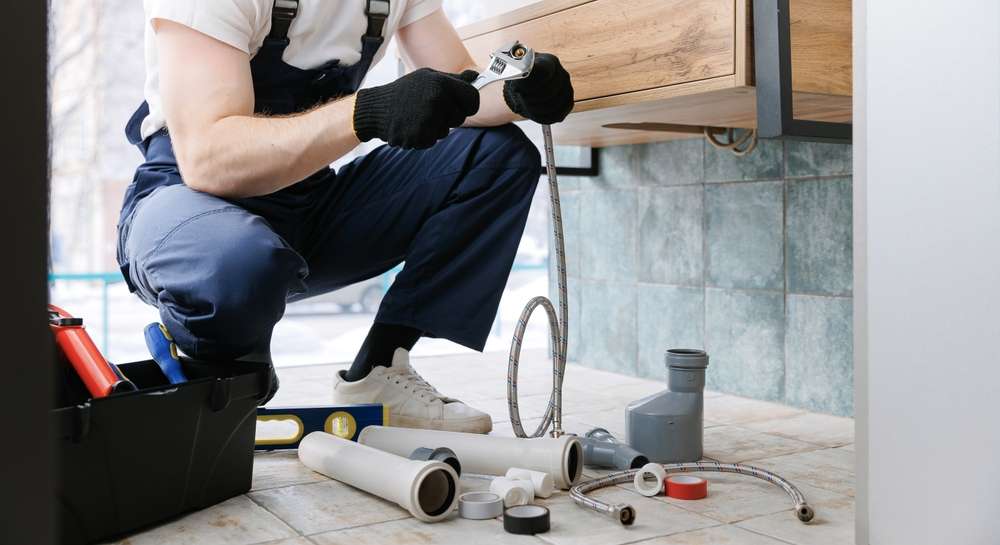Plumbing Apprenticeship: Your Path to a Successful Career in the Trades
Embarking on a career in plumbing can be an excellent choice for those seeking a stable, well-paying job in the skilled trades. Plumbing apprenticeships offer a comprehensive pathway to becoming a licensed plumber, combining hands-on training with classroom education. This article will explore the ins and outs of plumbing apprenticeships, including what to expect, how to get started, and the benefits of choosing this career path.

Typically, a plumbing apprenticeship lasts between four to five years, depending on the program and local regulations. During this time, apprentices earn a percentage of a journeyman plumber’s wage, which increases as they progress through the program. Upon completion of the apprenticeship, individuals are eligible to take the licensing exam and become fully qualified plumbers.
How do you become a plumbing apprentice?
To become a plumbing apprentice, you’ll need to meet certain requirements and follow a specific process. Here are the general steps to get started:
-
Meet the basic requirements: Most programs require applicants to be at least 18 years old, have a high school diploma or equivalent, and possess a valid driver’s license.
-
Research local apprenticeship programs: Look for programs offered by unions, trade associations, or local plumbing companies in your area.
-
Complete an application: Submit your application along with any required documentation, such as transcripts or proof of education.
-
Pass an aptitude test: Many programs require applicants to take a basic math and reading comprehension test.
-
Attend an interview: If you pass the aptitude test, you may be invited for an interview to assess your suitability for the program.
-
Secure sponsorship: Some programs require you to find a sponsoring employer before you can begin your apprenticeship.
-
Begin your apprenticeship: Once accepted, you’ll start your training, alternating between on-the-job experience and classroom instruction.
What does plumbing training involve?
Plumbing training through an apprenticeship program covers a wide range of topics and skills. The curriculum typically includes:
-
Plumbing systems and codes: Understanding various plumbing systems, local and national plumbing codes, and safety regulations.
-
Mathematics and physics: Learning the calculations and principles necessary for proper plumbing design and installation.
-
Blueprint reading: Developing the ability to interpret architectural and engineering drawings.
-
Pipe fitting and welding: Mastering techniques for joining and repairing different types of pipes and materials.
-
Water distribution and waste systems: Understanding how to design, install, and maintain both residential and commercial plumbing systems.
-
Troubleshooting and repair: Learning how to diagnose and fix common plumbing issues.
-
Safety procedures: Understanding and implementing proper safety protocols in various work environments.
-
Customer service: Developing communication skills to interact professionally with clients and colleagues.
Why choose a plumbing apprenticeship over trade school?
While trade schools offer valuable education in plumbing, an apprenticeship program provides several unique advantages:
-
Earn while you learn: Apprentices receive a wage while training, allowing them to support themselves during the learning process.
-
Hands-on experience: Apprenticeships provide extensive practical experience, working on real job sites under the guidance of experienced plumbers.
-
Industry connections: Through your apprenticeship, you’ll build relationships with employers and other professionals in the field, which can lead to job opportunities upon completion.
-
No student debt: Unlike traditional college programs, apprenticeships are typically free or low-cost, helping you avoid substantial student loan debt.
-
Direct path to licensing: Completing an apprenticeship often fulfills the requirements needed to take the licensing exam and become a journeyman plumber.
What are the career prospects for plumbers?
The plumbing industry offers excellent career prospects for those who complete their apprenticeship and obtain their license. According to the U.S. Bureau of Labor Statistics, employment of plumbers, pipefitters, and steamfitters is projected to grow 5% from 2020 to 2030, about as fast as the average for all occupations.
Plumbers can work in various settings, including residential, commercial, and industrial environments. Some plumbers choose to specialize in areas such as water treatment, gas fitting, or medical gas systems. As you gain experience, you may have opportunities to advance to supervisory roles, start your own plumbing business, or even become an instructor for future apprentices.
How much can you earn as a plumber?
Plumbing can be a lucrative career, with earnings potential increasing as you gain experience and skills. Here’s a general overview of plumber salaries in the United States:
| Career Stage | Estimated Annual Salary |
|---|---|
| Apprentice (1st year) | $30,000 - $35,000 |
| Apprentice (5th year) | $50,000 - $60,000 |
| Journeyman Plumber | $55,000 - $75,000 |
| Master Plumber | $70,000 - $100,000+ |
Prices, rates, or cost estimates mentioned in this article are based on the latest available information but may change over time. Independent research is advised before making financial decisions.
It’s important to note that these figures can vary significantly based on factors such as location, specialization, and whether you work for a company or are self-employed. Additionally, many plumbers earn overtime pay, which can substantially increase their annual income.
In conclusion, a plumbing apprenticeship offers a solid foundation for a rewarding career in the trades. With a combination of hands-on experience and classroom education, apprentices develop the skills and knowledge needed to succeed in this essential profession. If you’re interested in a stable, well-paying career with opportunities for growth and independence, consider exploring plumbing apprenticeship programs in your area.






